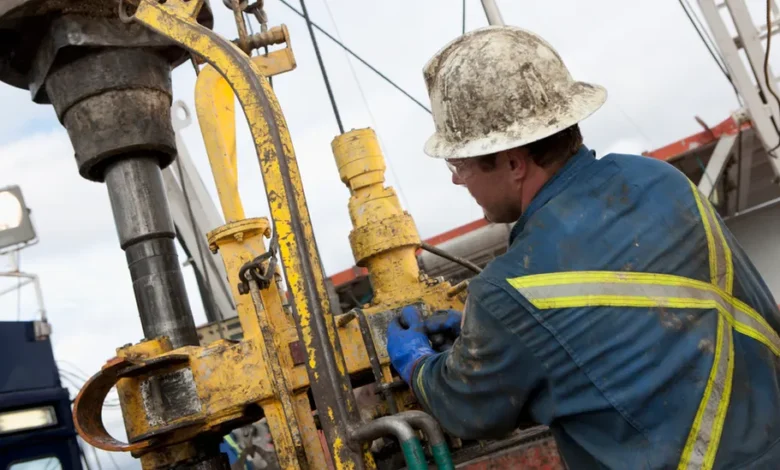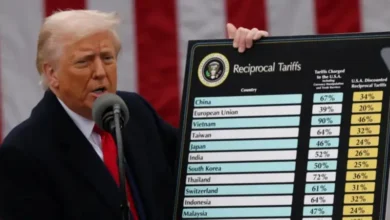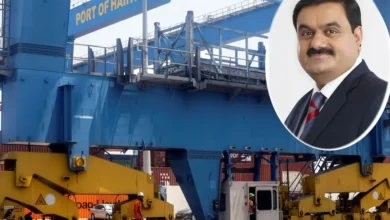Barclays to end direct financing of new oil and gas fields

Barclays has announced it will no longer provide direct funding for new oil and gas projects.
The banking giant also says it will restrict lending to energy businesses that plan to expand their fossil fuel production.
Barclays is a major lender to the fossil fuel industry, but has been coming under mounting pressure to curb its support for the sector.
Campaign groups welcomed the move, but insisted it did not go far enough.
According to a report from environmental group Rainforest Action Network, Barclays was the biggest funder of the fossil fuel sector in Europe between 2016 and 2021.
It provided just under $16.5bn (£13bn) in 2022, although that was significantly lower than in previous years. In 2019 and 2020, the figure was more than $30bn.
However, the bank has been under pressure from environmental campaigners, shareholder activists and even celebrities to curb its support.
Last year, a campaign group including the actress Emma Thompson and the film director Richard Curtis called on the All England Lawn Tennis Club to remove Barclays as a sponsor of Wimbledon. They claimed the bank was “profiting from climate chaos”.
In what it called a Climate Change Statement, Barclays announced it would no longer provide direct funding for projects designed to expand oil and gas production, or infrastructure related to such projects.
It said it would also end direct funding for any oil and gas projects in the Amazon or in the Arctic Circle, or which were aimed at extracting, processing or transporting oil from oil sands.
But direct funding for specific projects makes up only part of Barclays’ overall lending to the sector.
The bank said there would also be restrictions on new financing for energy groups themselves, although these will be stricter for new clients than existing ones.
The plan is not wholly focused on oil and gas. There will also be curbs on lending linked to coal mining and coal-fired power generation.
Barclays is not the first bank in Europe to introduce such commitments. HSBC, Lloyds, BNP Paribas, Societe Generale and Credit Agricole have all previously announced restrictions on funding for fossil fuels.
The latest announcement was welcomed by ShareAction, a group that campaigns for responsible investment, but it complained that there were loopholes in the plan.
“Barclays is wrong not to have ruled out financing companies that focus exclusively on fossil fuel extraction,” it said.
“This should include fracking, which is causing so much environmental and social harm and is an activity the bank is heavily exposed to.”
Meanwhile, Make My Money Matter, the group that includes Thompson and Curtis, said Barclays’ plan was “inadequate in scope and in ambition”.
Its chief executive, Tony Burdon, said: “While they finally caught up with other major European banks like Lloyds by ruling out direct project finance for fossil fuels, the reality is this covers just a fraction of their oil and gas lending.
“This new policy lets them continue funnelling billions to those companies developing catastrophic new fossil fuel projects around the world.”
Barclays has pointed out that oil and gas funding represents a very small proportion of its overall activities.










